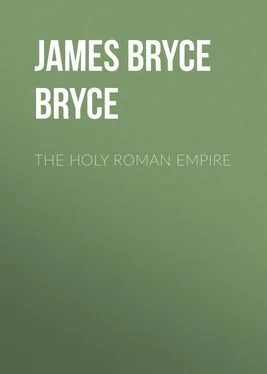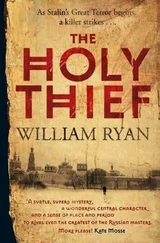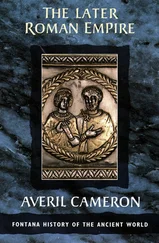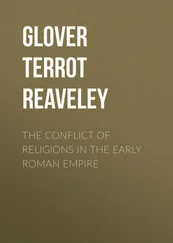James Bryce - The Holy Roman Empire
Здесь есть возможность читать онлайн «James Bryce - The Holy Roman Empire» — ознакомительный отрывок электронной книги совершенно бесплатно, а после прочтения отрывка купить полную версию. В некоторых случаях можно слушать аудио, скачать через торрент в формате fb2 и присутствует краткое содержание. Жанр: foreign_antique, foreign_prose, Историческая проза, на английском языке. Описание произведения, (предисловие) а так же отзывы посетителей доступны на портале библиотеки ЛибКат.
- Название:The Holy Roman Empire
- Автор:
- Жанр:
- Год:неизвестен
- ISBN:нет данных
- Рейтинг книги:4 / 5. Голосов: 1
-
Избранное:Добавить в избранное
- Отзывы:
-
Ваша оценка:
- 80
- 1
- 2
- 3
- 4
- 5
The Holy Roman Empire: краткое содержание, описание и аннотация
Предлагаем к чтению аннотацию, описание, краткое содержание или предисловие (зависит от того, что написал сам автор книги «The Holy Roman Empire»). Если вы не нашли необходимую информацию о книге — напишите в комментариях, мы постараемся отыскать её.
The Holy Roman Empire — читать онлайн ознакомительный отрывок
Ниже представлен текст книги, разбитый по страницам. Система сохранения места последней прочитанной страницы, позволяет с удобством читать онлайн бесплатно книгу «The Holy Roman Empire», без необходимости каждый раз заново искать на чём Вы остановились. Поставьте закладку, и сможете в любой момент перейти на страницу, на которой закончили чтение.
Интервал:
Закладка:
Thus in many ways was the old antagonism broken down – Romans admitting barbarians to rank and office, barbarians catching something of the manners and culture of their neighbours. And thus when the final movement came, and the Teutonic tribes slowly established themselves through the provinces, they entered not as savage strangers, but as colonists knowing something of the system into which they came, and not unwilling to be considered its members; despising the degenerate provincials who struck no blow in their own defence, but full of respect for the majestic power which had for so many centuries confronted and instructed them.
Their feelings towards the Roman Empire.
Great during all these ages, but greatest when they were actually traversing and settling in the Empire, must have been the impression which its elaborate machinery of government and mature civilization made upon the minds of the Northern invaders. With arms whose fabrication they had learned from their foes, these dwellers in the forest conquered well-tilled fields, and entered towns whose busy workshops, marts stored with the productions of distant countries, and palaces rich in monuments of art, equally roused their wonder. To the beauty of statuary or painting they might often be blind, but the rudest mind must have been awed by the massive piles with which vanity or devotion, or the passion for amusement, had adorned Milan and Verona, Arles, Treves, and Bordeaux. A deeper awe would strike them as they gazed on the crowding worshippers and stately ceremonial of Christianity, most unlike their own rude sacrifices. The exclamation of the Goth Athanaric, when led into the market-place of Constantinople, may stand for the feelings of his nation: 'Without doubt the Emperor is a God upon earth, and he who attacks him is guilty of his own blood 11 11 Jornandes, De Rebus Geticis , cap. 28.
.'
The social and political system, with its cultivated language and literature, into which they came, would impress fewer of the conquerors, but by those few would be admired beyond all else. Its regular organization supplied what they most needed and could least construct for themselves, and hence it was that the greatest among them were the most desirous to preserve it. The Mongol Attila excepted, there is among these terrible hosts no destroyer; the wish of each leader is to maintain the existing order, to spare life, to respect every work of skill and labour, above all to perpetuate the methods of Roman administration, and rule the people as the deputy or successor of their Emperor. Titles conferred by him were the highest honours they knew: they were also the only means of acquiring something like a legal claim to the obedience of the subject, and of turning a patriarchal or military chieftainship into the regular sway of an hereditary monarch.
Their desire to preserve its institutions.
Civilis had long since endeavoured to govern his Batavians as a Roman general 12 12 Tac. Hist. i. and iv.
. Alaric became master-general of the armies of Illyricum. Clovis exulted in the consulship; his son Theodebert received Provence, the conquest of his own battle-axe, as the gift of Justinian. Sigismund the Burgundian king, created count and patrician by the Emperor Anastasius, professed the deepest gratitude and the firmest faith to that Eastern court which was absolutely powerless to help or to hurt him. 'My people is yours,' he writes, 'and to rule them delights me less than to serve you; the hereditary devotion of my race to Rome has made us account those the highest honours which your military titles convey; we have always preferred what an Emperor gave to all that our ancestors could bequeath. In ruling our nation we hold ourselves but your lieutenants: you, whose divinely-appointed sway no barrier bounds, whose blessed beams shine from the Bosphorus into distant Gaul, employ us to administer the remoter regions of your Empire: your world is our fatherland 13 13 'Vester quidem est populus meus sed me plus servire vobis quam illi præesse delectat. Traxit istud a proavis generis mei apud vos decessoresque vestros semper animo Romana devotio, ut illa nobis magis claritas putaretur, quam vestra per militiæ titulos porrigeret celsitudo: cunctisque auctoribus meis semper magis ambitum est quod a principibus sumerent quam quod a patribus attulissent. Cumque gentem nostram videamur regere, non aliud nos quam milites vestros credimus ordinari… Per nos administratis remotarum spatia regionum: patria nostra vester orbis est. Tangit Galliam suam lumen orientis, et radius qui illis partibus oriri creditur, hic refulget. Dominationem vobis divinitus præstitam obex nulla concludit, nec ullis provinciarum terminis diffusio felicium sceptrorum limitatur. Salvo divinitatis honore sit dictum.' – Letter printed among the works of Avitus, Bishop of Vienne. (Migne's Patrologia , vol. lix. p. 285.) This letter, as its style shews, is the composition not of Sigismund himself, but of Avitus, writing on Sigismund's behalf. But this makes it scarcely less valuable evidence of the feelings of the time.
.' A contemporary historian has recorded the remarkable disclosure of his own thoughts and purposes, made by one of the ablest of the barbarian chieftains, Athaulf the Visigoth, the brother-in-law and successor of Alaric. 'It was at first my wish to destroy the Roman name, and erect in its place a Gothic empire, taking to myself the place and the powers of Cæsar Augustus. But when experience taught me that the untameable barbarism of the Goths would not suffer them to live beneath the sway of law, and that the abolition of the institutions on which the state rested would involve the ruin of the state itself, I chose the glory of renewing and maintaining by Gothic strength the fame of Rome, desiring to go down to posterity as the restorer of that Roman power which it was beyond my power to replace. Wherefore I avoid war and strive for peace 14 14 'Referre solitus est ( sc. Ataulphus) se in primis ardenter inhiasse: ut obliterato Romanorum nomine Romanum omne solum Gothorum imperium et faceret et vocaret: essetque, ut vulgariter loquar, Gothia quod Romania fuisset; fieretque nunc Ataulphus quod quondam Cæsar Augustus. At ubi multa experientia probavisset, neque Gothos ullo modo parere legibus posse propter effrenatam barbariem, neque reipublicæ interdici leges oportere sine quibus respublica non est respublica; elegisse se saltem, ut gloriam sibi de restituendo in integrum augendoque Romano nomine Gothorum viribus quæreret, habereturque apud posteros Romanæ restitutionis auctor postquam esse non potuerat immutator. Ob hoc abstinere a bello, ob hoc inhiare paci nitebatur.' – Orosius, vii. 43.
.'
Historians have remarked how valuable must have been the skill of Roman officials to princes who from leaders of tribes were become rulers of wide lands; and in particular how indispensable the aid of the Christian bishops, the intellectual aristocracy of their new subjects, whose advice could alone guide their policy and conciliate the vanquished. Not only is this true; it is but a small part of the truth; one form of that manifold and overpowering influence which the old system exercised over its foes not less than its own children. For it is hardly too much to say that the thought of antagonism to the Empire and the wish to extinguish it never crossed the mind of the barbarians 15 15 Athaulf formed only to abandon it.
. The conception of that Empire was too universal, too august, too enduring. It was everywhere around them, and they could remember no time when it had not been so. It had no association of people or place whose fall could seem to involve that of the whole fabric; it had that connection with the Christian Church which made it all-embracing and venerable.
The belief in its eternity.
Читать дальшеИнтервал:
Закладка:
Похожие книги на «The Holy Roman Empire»
Представляем Вашему вниманию похожие книги на «The Holy Roman Empire» списком для выбора. Мы отобрали схожую по названию и смыслу литературу в надежде предоставить читателям больше вариантов отыскать новые, интересные, ещё непрочитанные произведения.
Обсуждение, отзывы о книге «The Holy Roman Empire» и просто собственные мнения читателей. Оставьте ваши комментарии, напишите, что Вы думаете о произведении, его смысле или главных героях. Укажите что конкретно понравилось, а что нет, и почему Вы так считаете.












